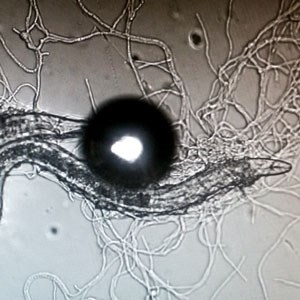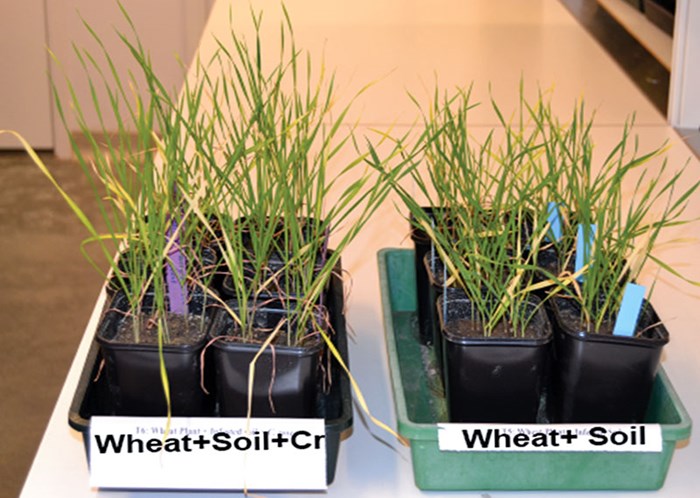Impact on plant parasites
- We studied the nematode community in naturally infested agriculture soil from a field in Uppsala, Mudassir says.
- We treated the soil with C. rosea and subsequently planted carrot and wheat, respectively, in this soil in a green house. By analyzing the nematode communities based on morphological characters in treated and untreated soils with and without crops, we endeavored to measure the impact of the application.
The study showed a clear impact of C. rosea on almost all plant parasitic nematodes in the soil and roots. Among seven observed nematode genera, the individual count dropped by between 40 and 73% for all but one, in both carrot and wheat soil. In soil without crop, the nematode count dropped in four out of seven genera. Both carrot and wheat grew better in fungus-treated soil.
Hostile environment
Mudassir Iqbal and his colleagues also investigated how this antagonism works in practice. Previous studies, using other C. rosea strains than in the present study, showed that the fungus parasitizes on the nematodes. Mudassir could however not see any signs of that in this study.
- But we did notice that nematodes were not able to grow in a medium in which the fungus had grown, but subsequently been removed from. This leads us to believe that C. rosea can utilize several strategies, of which one is to create a hostile environment in which the nematodes cannot survive.
- Our study thus shows that C. rosea is an efficient antagonist against plant parasitic nematodes in soil, but also that it does not attack other nematodes, Mudassir summarizes.
- This antagonism, in our study, seems based on the exudation of substances that inhibit growth of the nematodes. The treatment also has a notably positive effect on growth in both carrot and wheat. This is of course promising for the possibility to use the fungus as an efficient control agent against nematodes in agriculture, he finishes.


